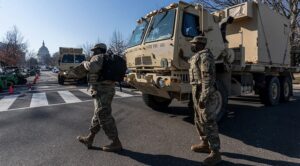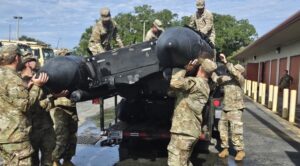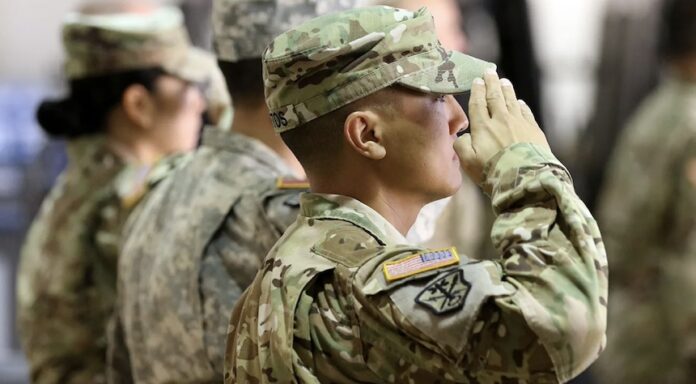Nearly 13,000 National Guard troops are still waiting for their enlistment bonus. This includes nearly 4,000 soldiers who left the service before receiving the bonus they were promised.
A National Guard official confirmed that the National Guard has fallen behind in paying bonuses for around 6% of the service members who are owed incentives.
According to an official, around 9,500 service members have not yet received the promised bonuses.
It is a widespread problem, as an additional 3,900 military personnel who have completed their service but have left the service have not also received their bonus. The official stated that “the majority” of these “appear not to have been eligible due to an associated adverse action which was not lifted after their separation.”
If a soldier’s adverse actions are flagged — such as being overweight or disciplined, etc. The bonus will be held until the soldier meets all the qualifying criteria (which were included in the bonus contract). “Sometimes they don’t even do that,” said the official.
Military.com was the first to report this issue and it has led to frustration among many members.

One soldier said, “I really relied on this money to move into a new apartment with my wife,” noting that he had been supposed to receive half of his $20,000 enlistment bonuses a year earlier. “I did what I could, but this is not a good introduction to the Army. They don’t take care of their people.”
The National Guard considers payments late after 30 days if no payment has been made. The official added that there was no policy in place that dictated when payments had to be made. This leaves service members with limited options when they become late.
The ARNG G1 is aiming to meet this goal, even though there is no policy that states soldiers must receive their bonuses within 30 days after eligibility. The official stated that the current processing time is about six months.
Officials added that “nearly 94 percent of our soldiers who were eligible for enlistment bonuses have received them.”
The official stated, “We are trying very hard to reconcile any remaining 6%. We hold ourselves to a higher standard and believe that one payment overdue to a soldier who is otherwise eligible is too many.”

Officials noted that those who are separated from the state for less than a year and believe they may still be entitled to a bonus can “contact their G1/personnel,” while those separated for longer than a year must “go through DFAS, submit a claim or bonus ticket.”
The official said that soldiers who have been fully qualified but have not yet received their bonus should alert their first-line leaders and personnel services section about the problem so that they can take the necessary steps to resolve it.
Officials stated that the Army National Guard Incentive Management System (GIMS) was a part of the problem. It was rolled out to streamline processes and prevent fraud and abuse in 2012, but crashed in 2018, and was inoperable in about 10 months. The official stated that a second 10-month outage occurred in 2021. This caused a complex manual process which resulted in backlogs.
The official stated that “GIMS functionality has significantly improved in the last two years, as evidenced by the increase in the number of transactions being processed.”
According to a report by Military.com, commanders in certain states found staff tracking enlistment bonuses on dry-erase boards or emails and handwritten notes. Locally, many administrative tasks are performed by staff who are not in their field of expertise. They are forced to manage “multiple cumbersome online systems” that are relied upon by the Guard.

Military.com reported that some soldiers who had not received bonuses said that the administrative staff members were giving incorrect information to soldiers, such as telling them their state ran out of money because of expensive training rotations.
There is a lot of misinformation at the unit level. “It’s not their fault and I’m working to fix it,” said one state’s adjutant-general, speaking to Military.com. “The soldiers are angry. Why would they stay? Some people are lazy. We shouldn’t have to ask the soldier for money. “We should pay our bills in time.”
The National Guard official stated that the service “continues monitoring and tracking outstanding bonuses by states/territories and actively makes all efforts to assist States in decreasing their aggregate workload.”
The official stated that the ARNG G1 incentives team holds monthly calls with all of the 54 state incentive managers, and also conducts state assistance visits. This helps states to learn about best practices, as well as providing targeted actions to reduce their backlog.




